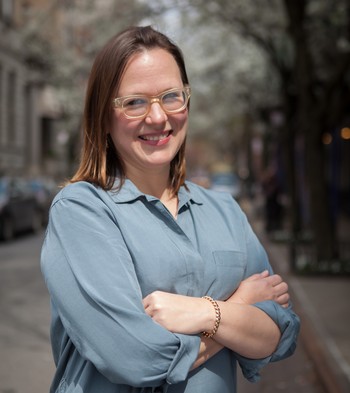Redefining where and when church happens
 Please stop treating my non-church ministry as if it weren’t real
Please stop treating my non-church ministry as if it weren’t real
A defense of validated ministries serving in non-congregational settings
by Mieke Vandersall
I have a friend. She has one of the most pastoral souls I have experienced in my time on this earth. She is compassionate, generous, patient, kind, direct, smart, inquisitive. She is the real deal. She is an ordained teaching elder (that’s what we Presbyterians call a pastor). She is deeply knowledgeable of parish life, having been a Presbyterian her whole life and having devoted her life to our church. She now works for the Presbyterian governmental structures that we so value. She is good at it. Really good at it.
She told me the other day that in a meeting she was off-handedly told that because she “hasn’t worked in a church” she was unable to help congregations. The people who make these comments tend to slip them into conversations off-handedly, as if a fact, as if no different than remarking that the sun is shining today. They always go something like this: “Well, I have served (or am serving) a parish and so I know [fill in the blank] in ways that you just can’t.” In seeking a call with a traditional parish, after a decade of ordained ministry, I have been asked more than once this question: “Can you please help us understand how you consider yourself a pastor if you haven’t ever worked in a parish?”
Those of us in validated ministries (outside of the traditional congregational setting) are often told in subtle and not-so-subtle ways that we just don’t understand congregational life. Yet, parish life has deeply formed me, and through my previous job working to change church policies around issues of homophobia, I actually have a great deal of experience with dozens of diverse traditional parishes. And perhaps most importantly, parish life is actually, despite how our governance system is so clearly organized, not Jesus’ main concern or the sole avenue through which we meet Christ.
There are other subtle ways too that those of us in non-traditional ministries are devalued. For example, in my presbytery, those of us in validated ministries are asked to re-validate our ministries every year. Every single year I have to turn in a report on the number of times I have officiated the sacraments, the places and dates I preached, and the ways I have served the church. On one hand, I understand this. I am outside of a traditional structure. That structure is organized around parishes and parish pastors. It is assumed that individuals who are in traditional parish ministry already do these things, and the sacraments are reported to the presbytery through the minutes of various sessions.
However, this reporting feels like a justification of my ministry. Let’s just say it gets old. It gets old having to defend my value and calling every year. It gets old to have my validation voted on by the presbytery each and every single year. At times—because people in my presbytery have not always agreed with my form of ministry—my validation has been challenged on the floor, and I have stood back witnessing supporters of my ministry rising to microphones, and non-supporters rise as well. It is the strangest sensation, to watch the validity of your ministry being debated even after one’s ordination.
Despite the extraordinary amount of unnecessary paperwork, I am fascinated thinking about what it would be like for all teaching elders to go through this reporting and justification process—every year just like the rest of us. I bet it might change things. I bet it might change how we view ministry, where we find it, how we name it, and why we validate it.
More and more of us will be in the validated-ministry category as time carries on. The number of parishes without pastors, unable to pay part-time or full-time salaries, is staggering. The number of pastors looking for traditional parish work, unable to afford part-time work, is staggering. The world, also, is changing, so that those of us who work for ourselves—who piece together a more lucrative career with helping careers, who choose to have multiple vocational balls in the air so that our hearts and our minds are continuously activated—are becoming the norm.
How and where we find church—it is changing. I for one am glad for it, because it allows us to seek out Christ in places we never thought to look. So how can we encourage this gift of the changing church and those who serve it?
For starters, we could figure out ways to (or at least study how we might construct ecclesiastical life to) not assume that the norm for teaching elders is traditional parish ministry. We could stop asking those of us who are outside these traditional structures to justify our ministry again and again—if we aren’t ready to ask all of us. We could build bridges of learning and support between those of us serving God through traditional parish settings and those of us serving God in the larger world through validated ministries. We could begin offering substantial support to candidates for ministry whose primary calling is to seek to serve God and the church through entrepreneurial ways.
In exploring this dynamic we might learn a lot about ourselves. And we might just help the whole church find itself again. We just might.
Mieke Vandersall is the founding pastor of Not So Churchy and a fundraising consultant with Wingo, Inc. She lives with her wife and their dog in New York City.